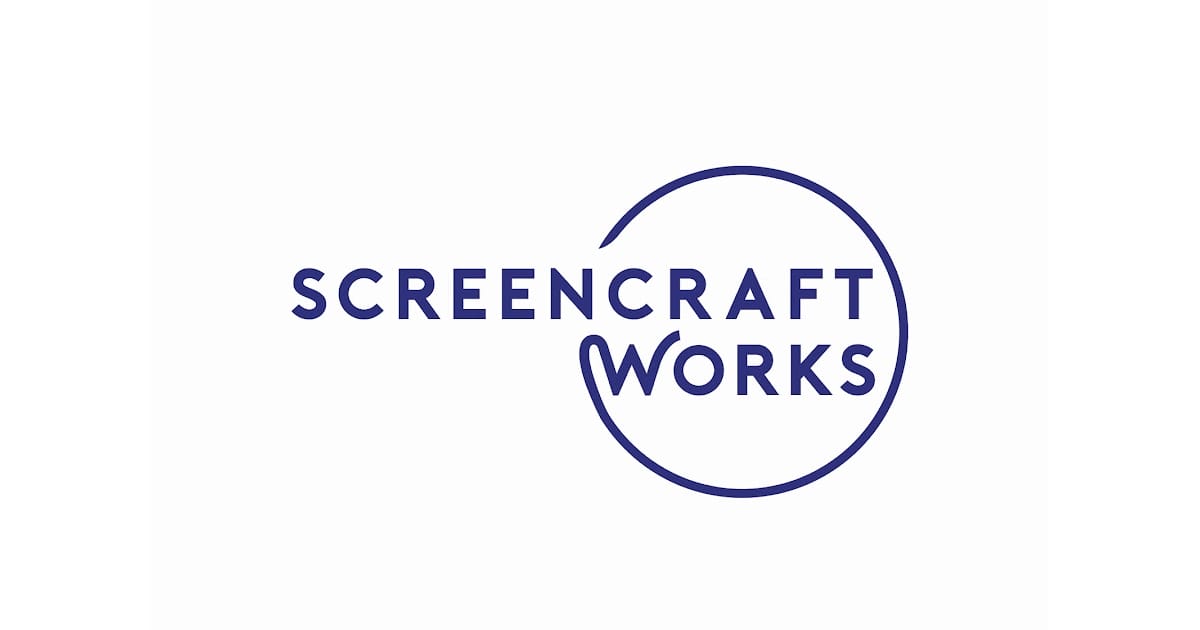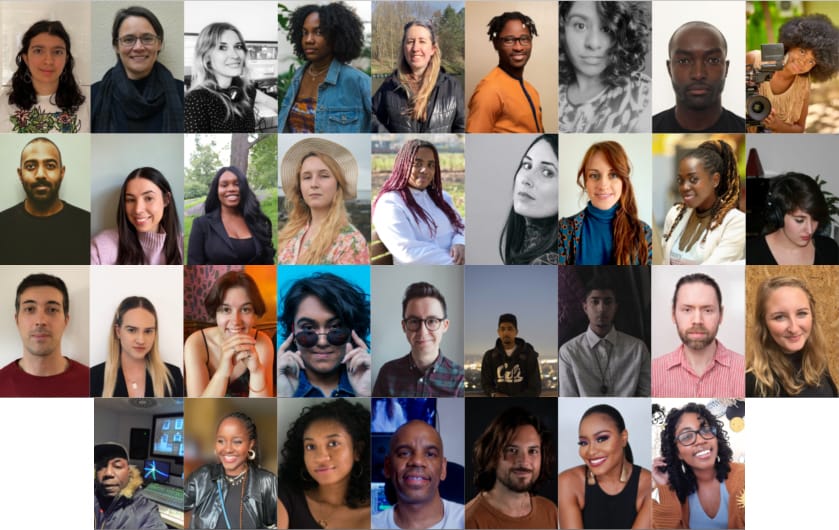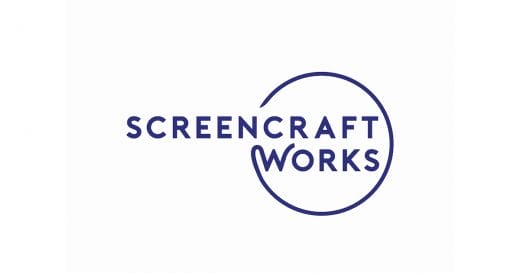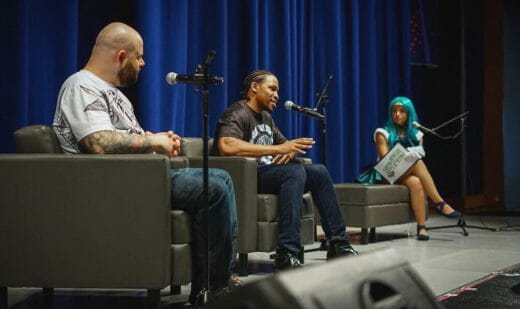
ScreenCraft Works is a not-for-profit organization based in the U.K. which connects seasoned international television and film professionals in below-the-line roles with those starting their careers. The organization aims to support technical, production and post-production workers from under-represented groups by creating networking and mentoring opportunities.
The organization runs three programs: Cross-Border Mentoring for learning and discovering new perspectives; Cross-Border Talks to amplify new voices and share knowledge; and Cross-Border Networking events for making connections in the industry. While not all mentoring applicants can be accepted, anyone is welcome to attend their virtual cross-border talks and networking events. Inspired by the post-pandemic acceptance of remote learning and virtual workflows, ScreenCraft Works launched in 2022. While their programs are not designed exclusively to support professionals in the animation industry, ScreenCraft Works has seen a growing interest in their programs from international animation industry pros, from animators to television music composers.
We had the chance to sit down with ScreenCraft Works co-director Elizabeth McIntyre to discuss the not-for-profit organization, the importance of amplifying diverse voices in media, and the new frontier of international collaboration made possible by the widespread adoption of virtual workflows. Elizabeth’s career spans conference, exhibition, commissioning and documentary filmmaking. Among her many directing and consultancy roles, she was Head of Production & Development (UK Factual) for Discovery Networks International, where she commissioned single films and series for local and global markets, including You Have Been Warned, The Great White Silence and Inside the Gangsters’ Code. Her documentaries include The Lost Children of Berlin (Steven Spielberg), Dangerous Love (BBC), No Place Like Home (BBC) and Five Steps to Tyranny (BBC). She also contributes to mentoring and masterclass programmes such as Wonder Women and ScreenSkills.
What prompted you and co-founder Rebecca del Tufo to create ScreenCraft Works?
Elizabeth: Throughout my career, across festivals, commissioning and production, I have always been acutely aware of the huge range of unsung heroes working in production and post-production — the below-the-line craft roles.
There is a rich scene of production and post-production people offering not only technical expertise but also their creative and cultural perspectives — a wide range of knowledge and experience often not fully appreciated on a production — whether that be for short films, movies, television or games.
In light of this, over the years, I have tried to ensure that the value of below-the-line craft roles is better appreciated. Alongside that, Rebecca and I are galvanized by the desire to contribute to the diversification of all film and TV roles, including technical roles. There is often a focus on striving for better representation for above-the-line roles, such as directors and actors. Which is vital, but only part of what makes better stories and productions.
Rebecca and I first met during the Covid pandemic. We were aware of the increasingly fractured global industry with many living in isolation — but we were also aware of the growing mainstream acceptance of remote learning, work-flows and networking through virtual platforms.
We realized this growing ability to operate virtually could allow us to better connect industry people globally in new ways. So we also realized it was a low-cost, nimble way to bring people together in a new virtual community that could operate across world time zones.
We created ScreenCraft Works as a result, with three program pillars: Cross-Border Mentoring, Cross-Border Talks, and Cross-Border Networking. Our community includes those working in animation, VFX, editing, sound design, composers, writers, production managers and producers. They are at all career stages, from new entrants through to experienced. We also work with partnership organizations.
The fact that you support such a wide scope of below-the-line credits is really interesting.
Elizabeth: What’s important to us is that animators and other production and post-production professionals can see how departments interconnect. For our mentoring scheme, we usually match mentees with a mentor of the same discipline: for example, a mentee animator with a mentor animator.
But we’re keen to ensure that people meet professionals from other departments to better understand how their roles fit into the bigger production picture. We enjoy offering cross-department talks and cross-department networking events with this purpose in mind.
Your programs aim to support people from under-represented groups. How do you define under-represented? Is there a particular focus on who you want to support?
Elizabeth: We allow people in our community to self-define what under-represented means to them. We try not to be gatekeepers of that. A person may not immediately appear to be from an under-represented group, but we don’t question that.
We also ensure we initiate outreach for widest inclusion in our community too. We find that the people who join our community span a number of intersections and define themselves as under-represented in the film and TV industry due to race and ethnicity, disability, neurodiversity, sexuality and gender.
Additionally, because our community is virtual, we attract professionals who are carers — whether of children or other family members — who are now able to learn and deliver work remotely. Others may come from countries where either they can’t afford to travel or it’s dangerous to travel, particularly for women or other marginalized genders. Or who wish to work in a more sustainable, greener way.
Once people join our community, we encourage them to make suggestions and to give feedback on any program they’re involved with, to maximize benefit to them and to expand our thinking. People are keen to increase their professional profiles internationally, increase opportunities to be employed globally, and deliver work virtually where they can. We’re not an agency, with the pure purpose of securing people jobs. Instead, we’re enablers, and we aim to develop people’s skill sets to help themselves.
For example, we have a strand called Cross-Border Coffees, where we bring together two film and TV people from different countries to have a professional chat. Once we have connected them, they are at liberty to decide whether to build their professional relationship further and stay in touch, or just enjoy a stand-alone virtual coffee.

In what ways does your online talks program support people?
Elizabeth: We’re finding that our Cross-border Conversations program helps increase the confidence and profile of speakers. Our speakers are drawn from our international community and each panel includes a first-time speaker. We ask our community to suggest talk topics to us, resulting in surprising, relevant and wide-ranging technical topics.
You also offer a cross-border mentoring program. How are mentees selected? Is there an application process? And do you approach potential mentors, or do they get in touch with you?
Elizabeth: The mentoring program is at the heart of our activity. We base our mentoring program on the ScreenSkills British Film Institute model. We were a 2022 mentoring partner for ScreenSkills/BFI, who supported us in the creation of our mentoring scheme.
The ScreenSkills model is a UK national model, and we have adapted that to work internationally. It’s a nine-month program. We ask people to apply to be a mentee or a mentor via a simple online application form.
Rebecca and I have discussions with potential mentee applicants, for a greater sense of their professional hopes and dreams, before deciding whether we can match them for the incoming mentoring cohort. Over the nine-month period, our mentee-mentor matches have a one-hour zoom call each month.
It’s inspiring to see former mentees return as mentors. Our mentors are volunteers who wish to give back to the industry, but they also tell us that their careers are enriched by the experience of mentoring. Mentors are usually one or two career stages ahead of their mentees.
We try to help the mentoring cohort create their own mini-community. It’s a joy to see former mentoring cohorts continue to consolidate their relationships long after their program has completed. Additionally, current mentoring cohorts connect with past mentoring cohorts. Increasing their networks.
Applications are open now for our Spring 2024 Cross-Border Mentoring program and we welcome applications from potential mentors and potential mentees.
These industries have changed so much in the last ten years, let alone twenty or thirty years. Is there different wisdom to glean from different mentors at different stages in their careers?
Elizabeth: You’re right. Throughout my career I have done voluntary mentoring. I stay in close touch with those I’ve mentored and I learn just as much from them as the other way around.
An example is my former mentee, Caroline O’Neill, who is now a BBC assistant commissioner and executive producer. Caroline is profoundly deaf. As well as working in commissioning, Caroline co-founded Deaf & Disabled People in TV, a UK charity. She’s now on our ScreenCraft Works Advisory Group too.
Caroline was my mentee but I learned so much from her creatively and from her perspective. Understanding her experiences of being a deaf person in the industry galvanised me to introduce adjustments into the workplace over the years to better support deaf colleagues. It was a real honour to mentor her.
Particularly in the case of hearing impairment, there are so many details of professional life that most of us wouldn’t even consider might need adjustments. We just assume that, of course, we can all jump on that phone call, no problem.
Elizabeth: Yes. And I would like to add that I learned from Caroline not to be afraid to ask questions, and not to be afraid of using the wrong expressions or turns of phrase – better to try, or to ask. And secondly, realize that interventions and changes may not be costly or onerous for production, and can be made swiftly to include often excluded talent.
Is there a lot of interest from animators to join your community?
Elizabeth: We’re attracting people who are 2D animators and other animation creatives, both for adults’ and children’s animation. We’re excited about that. I have found it so inspiring and exciting to begin to understand the breadth and impact of such a range of international animation styles. We are looking forward to welcoming more animators into our community (which is free to join).
One of our mentors who works in animation is Setareh Erfan. She was a clean animation supervisor for the Oscar-winning short, The Boy, the Mole, the Fox and the Horse. This charming, impressive, inspirational, generous of spirit, super-talented person said, “Yes, I would love to mentor in your program.” Seti, as she’s known, is Tajha Winkle’s mentor. Tajha is from Jamaica, and Seti is from the UK. We also match across related departments, including composers who specialize in composing for animation, who often work in tandem with animators.
2D animators often work solo, so it is rewarding for them to connect across departments, helping them better understand how they fit into the bigger picture with other departments.
[You can read our interview with Setareh Erfan and Tajha Winkle about their experiences with cross-border mentorship.]
It’s no secret that film and television in the western world has historically been very white and very male. Do you think these industries are doing enough to amplify more diverse voices?
Elizabeth: I’m a white woman who had the chance to go to university. I’m aware of the privilege I carry. I think that’s important to say. Some organizations and individuals are doing incredible work for a more equitable industry. But there is always room to do more. Achievements also vary from country to country as well. My frustration over the years has always been top-down, grand statements made by broadcasters, when often a “just hire” approach can produce effective results.
Our approach at ScreenCraft Works – and we’re micro – is just to do something rather than nothing. To act rather than not act. To create a few programs that help a few people rather than over-strategize. Our philosophy is: small acts of kindness for global change. As well as quite understandably having targets and strategies – which can work – we encourage people to come to the end of each week and ask, “What small intervention did I implement which collectively might make big change?”
Our philosophy is to encourage and influence people to reconsider, and not to see diversification as risk-taking, but as an opportunity for incredible new talent to come to the table. And rather than change being overwhelming, just saying, “I’ll take a step. I’ll make a small intervention for ultimately bigger change”. We’re now approaching our two-year anniversary. As a not-for-profit micro-organization, we aim to punch above our weight and be as noisy as possible. We care phenomenally about what we’re doing. Come and join us!
- For more about ScreenCraft Works and how to get involved, check out their website.
- ScreenCraft Works is currently accepting applications for their next Cross-Border Mentoring cohort! Learn more about the ScreenCraft Works Cross-Border Mentoring Scheme and apply here to be a mentor or mentee.



